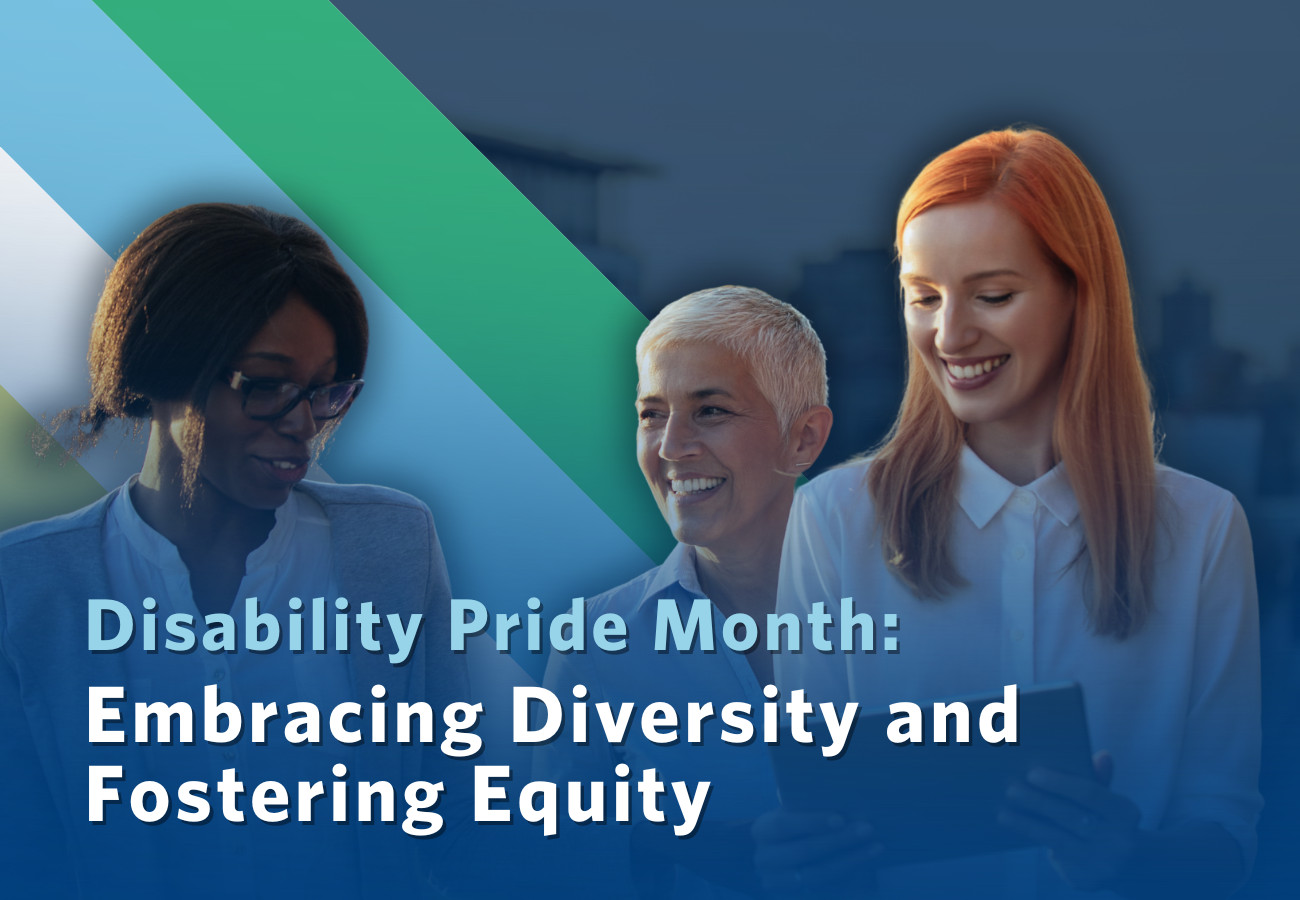July is Disability Pride Month, to celebrate the history, achievements, and experiences of the disability community.
Disability isn’t caused by a person's diagnosis, but arises when environments, systems, or attitudes are inaccessible or inflexible.
One in four working-age Canadians (27%) has a disability, up from 2017, with mental health and pain-related disabilities seeing the greatest increase. And with disability rates increasing with age, including temporary conditions, most of us will experience some type of disability in our lifetime.
Accessibility benefits everyone by creating environments where all can thrive. It reduces the need for individual accommodations and fosters belonging.
Workplace accessibility starts with:
- Flexibility: Offer options and respect different work styles.
- Communication: Share agendas early and ask about access needs.
- Recognition: Appreciate diverse contributions and share your own accessibility needs.
- Learning: Listen to disabled voices and engage in ongoing education.
As one UBC employee shared:
I want to connect, but neurotypical social norms can be hard. Please be open to communication differences and include everyone.
Let’s build inclusive teams by committing to accessibility in physical, digital, and social spaces.
Explore UBC’s resources to your disability-inclusion literacy:
- Take the new UBC Workplace Learning Course: Disability at Work 101
- Learn about the UBC Accessibility Committee, dedicated to removing barriers to accessibility
- Explore UBC’s Centre for Workplace Accessibility, which offers resources including consultations, guidance on physical and digital accessibility, funding, and more.
